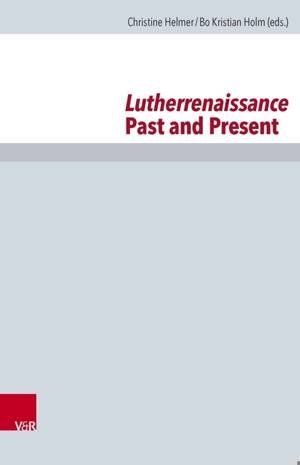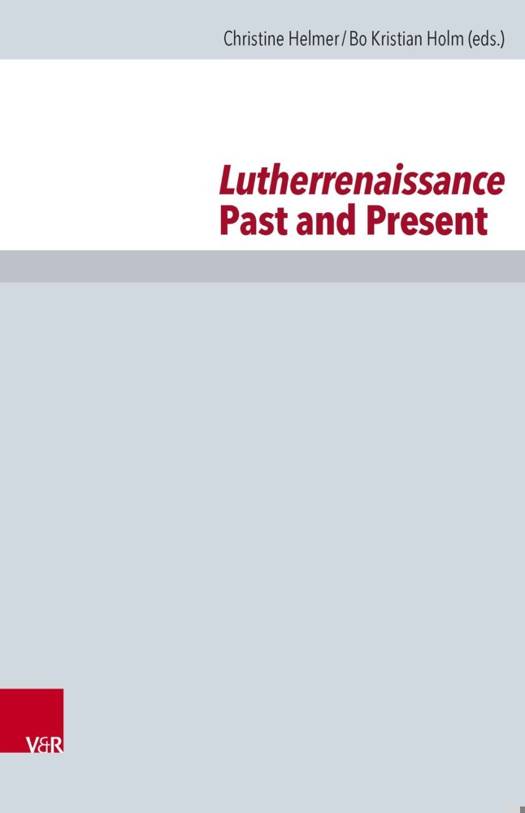
Je cadeautjes zeker op tijd in huis hebben voor de feestdagen? Kom langs in onze winkels en vind het perfecte geschenk!
- Afhalen na 1 uur in een winkel met voorraad
- Gratis thuislevering in België vanaf € 30
- Ruim aanbod met 7 miljoen producten
Je cadeautjes zeker op tijd in huis hebben voor de feestdagen? Kom langs in onze winkels en vind het perfecte geschenk!
- Afhalen na 1 uur in een winkel met voorraad
- Gratis thuislevering in België vanaf € 30
- Ruim aanbod met 7 miljoen producten
Zoeken
Lutherrenaissance
Past and Present
€ 195,45
+ 390 punten
Omschrijving
This volume makes a distinctive contribution to the upcoming 500th anniversary of Luther's reformation by looking back to the previous centennial in 1917 and tracing forward the enduring impact of the questions raised by Lutheran scholars then to contemporary research in religious studies, history, and theology. The great flourishing of interest in Luther's religious experience and thought in Berlin at the turn of the twentieth century was known as the utherrenaissance an extraordinarily generative moment of scholarly creativity within the Lutheran tradition. Thinkers such as Holl, Harnack and Otto took up questions that would reverberate throughout twentieth century religious and theological inquiry, on the nature of history, for instance, dialectical theology, and the question of mysticism in religious experience. The Lutherrenaissance also planted the seeds of a political theology that contributed to the alliance of Lutheran theologians with National Socialism. Contributors to this volume, attentive to both to the rich contributions of the Lutherrenaissance and its darker consequences, open an unprecedented conversation across the century. Then and now, the study of religion and theology were in periods of transition; then and now, scholars were working at the very foundations of the various disciplines of religious inquiry across the social sciences and humanities. Contributors aim to bring the critical insights of that period to bear on key questions in the study of religion and theology today, with particular attention to the global context within which present day scholars work. It exemplifies new perspectives in Luther scholarship today, the rich and fertile grounds of the Lutheran tradition, in its engagement with unprecedented global circumstances.
Specificaties
Betrokkenen
- Uitgeverij:
Inhoud
- Aantal bladzijden:
- 256
- Taal:
- Engels
- Reeks:
- Reeksnummer:
- nr. 106
Eigenschappen
- Productcode (EAN):
- 9783525564158
- Verschijningsdatum:
- 17/06/2015
- Uitvoering:
- Hardcover
- Formaat:
- Genaaid
- Afmetingen:
- 173 mm x 244 mm
- Gewicht:
- 612 g

Alleen bij Standaard Boekhandel
+ 390 punten op je klantenkaart van Standaard Boekhandel
Beoordelingen
We publiceren alleen reviews die voldoen aan de voorwaarden voor reviews. Bekijk onze voorwaarden voor reviews.








